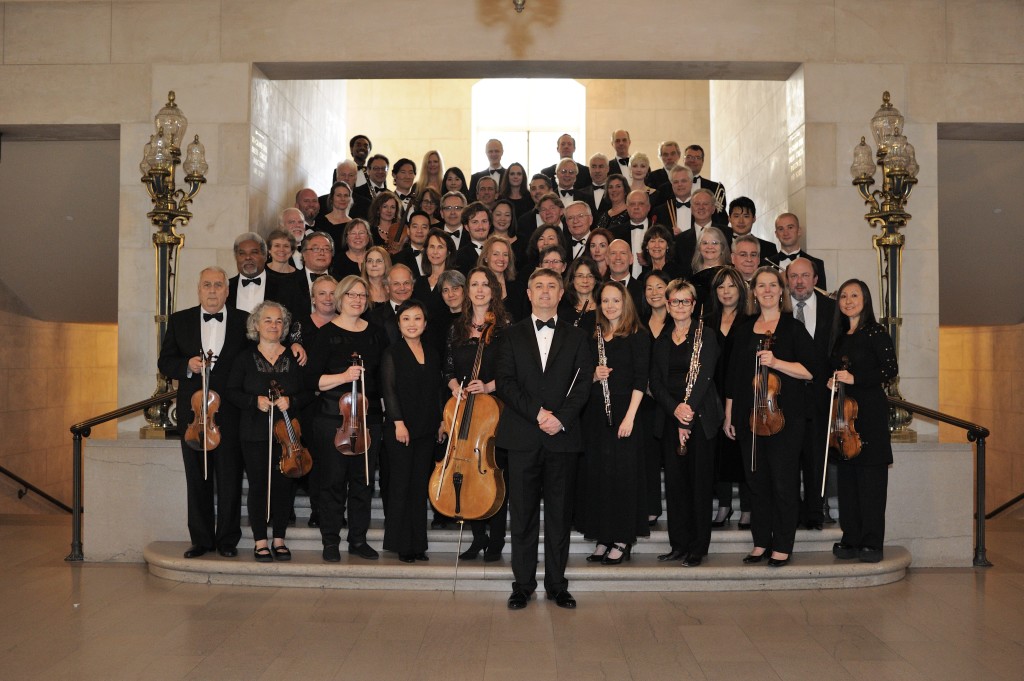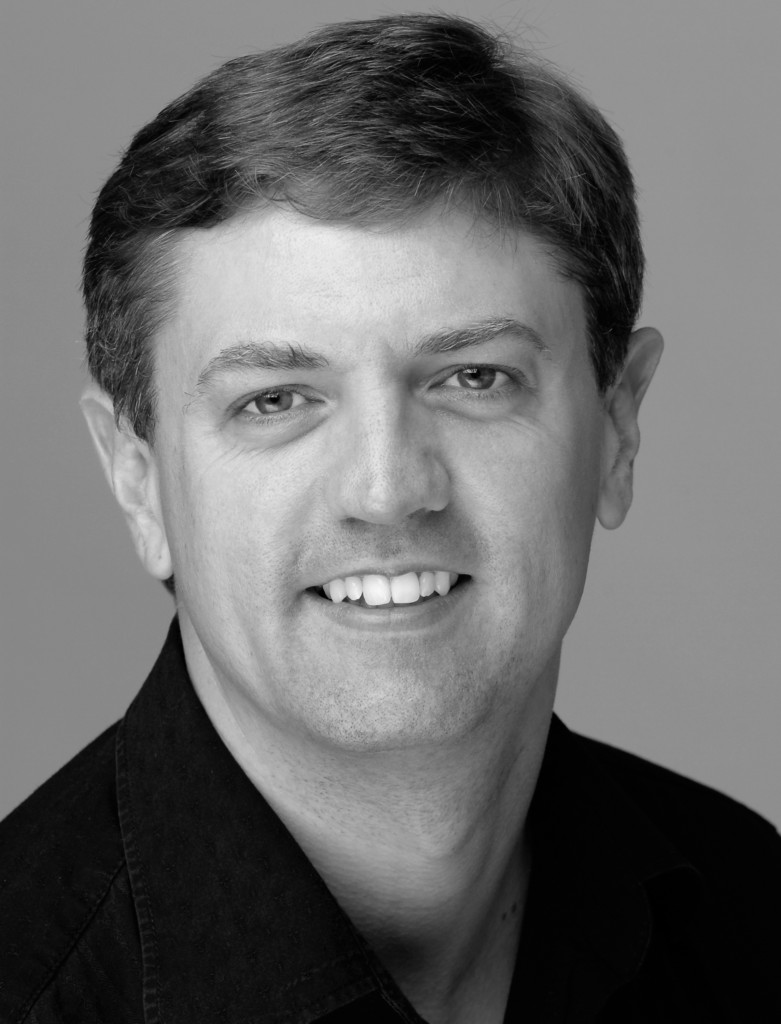
San Francisco Ballet Orchestra.
(© Erik Tomasson)
An orchestra is many things at once. It is, among other things, a living, breathing entity; an outgrowth of the community in which it exists; an organization of incredible collective talent; a cultural ambassador for curious concertgoers such as myself. All these aspects were apparent in the San Francisco Ballet Orchestra’s 40th Anniversary Concert,which took place in the Herbst Theater on March 25.
Though this may seem strange for me to say about an orchestra concert that seemed sold out or close to it, the concert was a wonderfully intimate experience. For one thing, the acoustics in the Herbst Theater were excellent. The music’s often-dramatic shifts in texture were not lost to my ears, which appreciated the clarity of the sound. And in Chausson’s rhapsodic and ruminative Poeme for violin and orchestra, which came in the middle of the program, I felt as if I could just reach out and touch the soloist’s exquisite, singing tone.
The concert began with the performance premiere of Kip Winger’s Conversations with Nijinsky, based on the rock-musician-slash-orchestral-composer’s impressions of the legendary 20th-century Russian ballet dancer Vaslav Nijinsky. It is an exciting and dynamic piece in four movements that progresses from a fiery, crazed fanfare to an ingeniously dizzy waltz, pausing for a moment of existential, angsty introspection before ending with a bittersweet monumentality. Many of Winger’s gestures involve an expansive, cinematic sweep of the type that may seem familiar to many listeners. However, far from merely rehashing blockbuster film music tropes, Winger capitalizes on the full range of orchestral capabilities, using a diverse palette of tone colors to paint a complex picture of a complex character.
The orchestra delivered a robust, visibly enthusiastic performance that left nothing to be desired. The quality of this performance does not come as a surprise, especially given the fact that the San Francisco Ballet Orchestra is one of the foremost ballet orchestras in the world. In addition, I was fascinated to find out that this orchestra, at the time of performance, had just recently recorded Conversations with Nijinsky for a soon-to-be-released album of Winger’s music. And successful recordings by this orchestra, it turns out, are not without precedent: in fact, another recording of theirs won two Grammy awards this past February.
Needless to say, when intermission came, I walked into the lobby feeling privileged to have witnessed this compelling and expertly executed performance of a piece that had never been heard in public before, and presumably won’t be again until the album is released.
But the concert was not yet over. After the Chausson and intermission, the orchestra plunged into the 1945 version of Stravinsky’s classic Firebird Suite. Stravinsky was a master at mobilizing orchestral forces to tell a story through sound, and the orchestra conveyed that story excellently. There are several moments that are quite remarkable—for example, in the Introduction, the violins and cellos lightly run their fingers along a string while bowing, generating simultaneous, interweaving harmonic glissandi that yield a truly otherworldly sound. After the Firebird, the orchestra played a brief encore (Fackeltanz by Moszkowski) and the concert was over.
Overall, I was struck by the sheer immediacy of the performance. Kip Winger’s premiere contributed a great deal of this immediacy; in fact, it turned out that Winger was sitting right in front of me in the audience. I managed to shake his hand and congratulate him before his friends and admirers swamped him after the concert.
Equally compelling, however, was the passion and skill with which this orchestra played in this concert. The SFBO’s new concertmaster Cordula Merks delivered a deeply satisfying and technically flawless performance of the Chausson. In addition, Kip Winger’s piece and the Firebird Suite together served as a tour de force in orchestral expertise. Firebird in particular is especially well known for its various spotlights on virtually all sections of the orchestra, and the musicians of the SFBO executed these challenging parts with impeccable precision and admirable musicality. When the conductor, Martin West, allowed each section to be recognized in turn at the end of the concert, the audience applauded and cheered with great enthusiasm. I left the Herbst Theater and made my way back to campus inspired and ready to bring that same level of commitment to my own endeavors.

Martin West.
Whenever I find myself in a new city, I make an effort to see one of their major orchestras perform. San Francisco is no exception; in fact, the SFBO concert was only the latest in a long string of orchestra concerts I have seen in the city and at Stanford since arriving in the Bay Area two and a half years ago.
Each concert has its own distinctive character. I vividly remember my first trip to the San Francisco Symphony only a few weeks into my freshman year at Stanford, when my conducting IntroSem, “A View from the Podium,” saw a very memorable program of Ades’ Three Studies from Couperin, Stravinsky’s Violin Concerto, and Mendelssohn’s Symphony No. 3 “Scottish.” That concert, one might notice, followed the same general structure as the SFBO concert—contemporary piece, then soloist piece, then major symphonic work—but exuded noticeably different themes. For instance, whereas the SFS concert highlighted the role of tradition in music, the SFBO concert highlighted that of innovation: a perhaps fitting focus for an orchestra navigating the uncertainties of the classical music world in the 21st century.
There are many more nuances to conversations such as these, but here it suffices to say that the SFBO concert gave me a lot to think about and whetted my appetite for more music. The Bay Area—not to mention the Stanford campus itself!—abounds with orchestra concerts, and for me, they are excellent ways to procrastinate on psets, spend an evening with friends, and listen to great music as it was meant to be performed: live.
